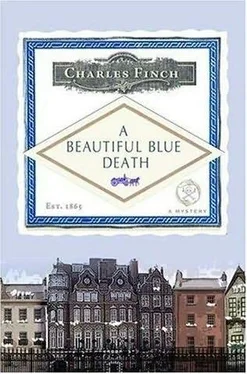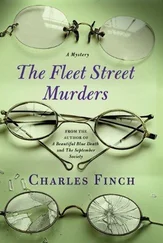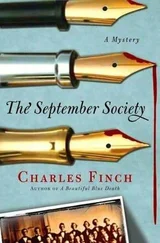Charles Finch - Beautiful blue death
Здесь есть возможность читать онлайн «Charles Finch - Beautiful blue death» весь текст электронной книги совершенно бесплатно (целиком полную версию без сокращений). В некоторых случаях можно слушать аудио, скачать через торрент в формате fb2 и присутствует краткое содержание. Жанр: Исторический детектив, на английском языке. Описание произведения, (предисловие) а так же отзывы посетителей доступны на портале библиотеки ЛибКат.
- Название:Beautiful blue death
- Автор:
- Жанр:
- Год:неизвестен
- ISBN:нет данных
- Рейтинг книги:5 / 5. Голосов: 1
-
Избранное:Добавить в избранное
- Отзывы:
-
Ваша оценка:
- 100
- 1
- 2
- 3
- 4
- 5
Beautiful blue death: краткое содержание, описание и аннотация
Предлагаем к чтению аннотацию, описание, краткое содержание или предисловие (зависит от того, что написал сам автор книги «Beautiful blue death»). Если вы не нашли необходимую информацию о книге — напишите в комментариях, мы постараемся отыскать её.
Beautiful blue death — читать онлайн бесплатно полную книгу (весь текст) целиком
Ниже представлен текст книги, разбитый по страницам. Система сохранения места последней прочитанной страницы, позволяет с удобством читать онлайн бесплатно книгу «Beautiful blue death», без необходимости каждый раз заново искать на чём Вы остановились. Поставьте закладку, и сможете в любой момент перейти на страницу, на которой закончили чтение.
Интервал:
Закладка:
“Doesn’t seem quite right, that,” said Lenox dubiously.
McConnell chuckled. “Anyway, I checked, and those dregs, unlike the poison that so dramatically turned yellow in the victim’s room, turned purple. The glass had been used-filled with bella indigo, that is- then washed, then filled with water and arsenic, and finally drained again into a sink.”
“Fascinating.”
“A double deception. To confirm what I had found, I looked around the rim of the glass.”
“Yes?”
“While there was arsenic on the lip of the glass, there was no longer any sign that any human being had drunk from the glass. No partial print, even. And glass is notoriously easy to find fingerprints on, even with our inadequate system. The glass was washed after Prue Smith ingested the bella indigo and before it reached me, or her fingerprints would be all over it.”
“All of it is crafty,” said Lenox, “but only to the point that the murderer assumed that the police would conclude that the girl had destroyed herself.”
“Exactly. Though the murderer wanted to conceal as well the use of the rare drug.”
“Which may mean he knew the poison was so rare it would lead to him, perhaps. That’s very helpful. But why not just use the arsenic?”
McConnell looked at him keenly. “That crossed my mind,” he said. “I think there are two reasons. The first is that the murderer thinks himself very clever-a doctor, perhaps. The second is that arsenic is less definitely deadly than bella indigo, which always kills. Arsenic is hard to dose. It can make people very sick rather than kill them, for instance. And it’s easier to trace. The arsenic on the table must have been an afterthought…”
Both men walked toward the armchairs by the fire. A window was open, as it was in every season, and a chill blew through the room.
“Can I offer you a glass of something?”
“This early?”
“It’s nearly ten, you know.” McConnell studiously avoided Lenox’s eyes as he poured himself a drink and took the first sip. “Anything else new?”
Lenox shrugged. “Yes and no. I know who Barnard’s guests are, now.”
“Who?”
“Two nephews. Neither of them seems the sort. And two politicians. Neither of them seems the sort either.”
“Which ones?”
“Soames and Duff.”
“Newton Duff?”
Lenox nodded.
“I wouldn’t like to have him in my house, for what it’s worth,” said McConnell, and took another sip.
“Nor would I,” Lenox answered. “That doesn’t convict him, unfortunately.”
“Who’s the last?”
“Roderick Potts.”
“The fellow with all the money?”
“Yes.”
“Toto won’t let us see him. She says he’s a beast, whatever that means. Perhaps even a perfect beast, which from my experience is a title that she reserves for few people. Shreve, on occasion her father, on occasion… well, myself, I suppose.” McConnell laughed uneasily and took a long sip of his drink.
“So you don’t know him at all?” said Lenox quickly.
“Not at all.”
“Toto may be right about him. Jane, insofar as she controls my social life, would never let me see him either.”
“Lower class, or a brute?” asked McConnell.
“Both, perhaps. From what I know he has few social aspirations, which sets him apart from most of these enormously rich men who come to London.”
“Sets him apart from Barnard.”
“You’re right,” said Lenox, “absolutely right. I would say that the only force strong enough to draw each to the other is a large amount of money. And as it happens, though I can’t mention details, there is a large amount of money on the periphery of the case.”
“Perhaps at the center.”
“It had crossed my mind.”
“How did this chap make all his money? Robbing graves, or something?”
“He’s from the north, actually, near Newcastle. He manages industrial plants there. Steel, that sort of thing. The end of the country farmer, the beginning of the modern age. Actually, I know very little about him.” He would have to think of a way to change that.
“Why did he come to London, then?”
“You’ve got me there. He lives in grand style quite near here. It may be that he manages his plants from afar and gambles on the Exchange.”
“That sounds like Barnard’s cup of tea,” McConnell said.
“Indeed it does. But you were right to say that Barnard would usually be too proud to have a man like Potts in his house-you know, salt of the earth.”
“Curious.”
“Yes. Although from what Graham says I believe there may be another possible reason.” Lenox frowned. “Apparently Potts has a daughter who has come of age. She’s pretty, I gather, and extremely well educated, and she’ll have a dowry and a half, should it come to marriage.”
“An impoverished older house, you think?”
“Something along those lines, I expect. Potts, as I say, has a grand house in London himself, but he would have gone to Barnard’s in any case if he had an ounce of social ambition.”
“Of course,” McConnell said. “Do you think Potts means to tie the girl to one of the nephews?”
“I doubt it. I imagine he thinks too lowly of them and too highly of his daughter. But if Potts could broker a deal with an older house, one of the Duchess Marchmain’s sons, for instance, he might have entree to a world outside politics and money. Our world, Thomas.”
“We see enough of Barnard.”
“That’s true. But he has more acquaintances than friends.”
“What does this man Potts look like?” McConnell asked.
“I don’t know, really. A twinkle in his eye, good posture, exercises daily, cold baths, all that, I daresay. The self-made man. Intelligent, whatever you think of him.”
“Toto thinks quite highly of the self-made man, of course.”
“I do too, if it comes to it,” said Lenox.
“As do I.”
Lenox stood up. They shook hands and agreed to check in with each other soon, and McConnell saw his friend out of the room.
Chapter 15
I t was midmorning when Lenox left McConnell’s house, and while the air was brisk it wasn’t biting, and he walked along the busy sidewalks in a cheerful mood. The streets nearby were open and sunny, and he felt glad to be outside. His destination was the Jumpers, which when he found it seemed to be a building much like that of any other club: four or five stories, white stone, with comfortable rooms behind the windows. He was soon dissuaded of this impression of normalcy, however, when a shoe hurtled through the front window.
He had chosen to come here because it was the haunt, according to Graham, of Claude Barnard, the young man whom Lenox had briefly met in the hallway at the lad’s uncle’s house. Graham had said he could be found here at all hours of the day, and indeed, when Lenox asked the porter if he was in residence, the porter, who looked as harassed as Job on a middling day, merely pointed straight ahead to the dining room.
The shoe had evidently had its origin here, for there was a young man, apparently called Pinky, hopping angrily toward the door on one foot.
Claude was seated at the far end of the table, next to someone Lenox thought might be one of Lord Williams’s sons. He stood up without seeing the detective and began to walk out of the room, to calls of disappointment from his companions.
“Got to see to business!” he kept saying.
Lenox waylaid him by the door. “If I could have a moment of your time, young man?” he said.
Claude seemed to be clearly against the proposition. “What for?”
“You may remember that we met yesterday morning.”
“The chap in the hallway?”
“Yes.”
Читать дальшеИнтервал:
Закладка:
Похожие книги на «Beautiful blue death»
Представляем Вашему вниманию похожие книги на «Beautiful blue death» списком для выбора. Мы отобрали схожую по названию и смыслу литературу в надежде предоставить читателям больше вариантов отыскать новые, интересные, ещё непрочитанные произведения.
Обсуждение, отзывы о книге «Beautiful blue death» и просто собственные мнения читателей. Оставьте ваши комментарии, напишите, что Вы думаете о произведении, его смысле или главных героях. Укажите что конкретно понравилось, а что нет, и почему Вы так считаете.












